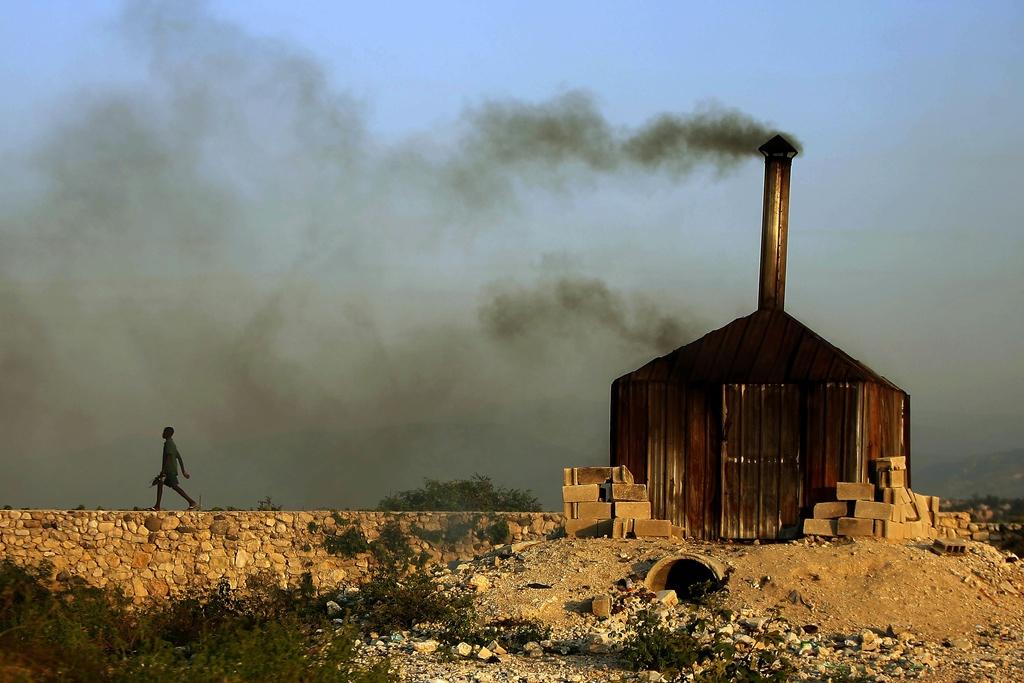Cholera alert in Dominican Republic
A boy walks before a facility where trash and waste from a hospital that treats cholera victims is burned near Port-au-Prince, March 23, 2011.
An upsurge in new cholera cases has prompted the Dominican Republic to declare a state of alert in areas of the capital.
Sixteen people have been hospitalized with suspected cholera cases, and there have been two deaths in recent days, reports the BBC.
More than 4,500 have died in neighboring Haiti from cholera since last October, according to the United Nations.
Monitoring has been increased in 17 mainly poor neighborhoods in Santo Domingo. The health ministry is urging people to take extra care with hygiene.
Neither Haiti nor the Dominican Republic had had a confirmed case of cholera in more than a century until the outbreak began in October.
The Dominican Republic detected its first case of cholera in mid-November in a Haitian migrant who crossed the border between the two countries.
After the January 2010 quake, the Dominican Republic imposed a moratorium on deportations of Haitians. But this January, the government once again began deporting undocumented Haitians. As of mid-March, the Dominican military had deported nearly 7,000 Haitians.
The government has defended the deportations, saying they are done in the name of preventing the spread of cholera.
Relations between the two countries have historically been tense:
Dominicans see Haitians as their rivals, their natural enemies, a feeling that has roots in the 22-year Haitian occupation of the Dominican Republic in the 1800s. Dominican dictator Rafael Trujillo was almost single-handedly responsible for the modern anti-Haitianism sentiment … . As part of a campaign to “whiten” Dominican society, he infamously ordered the massacre of an estimated 6,000 Haitians living near the border in 1937.
